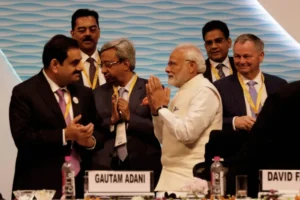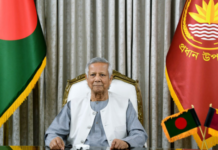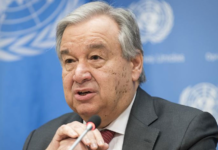Bangladesh’s opposition has jumped on the recent controversy over the Indian tycoon to demand cancelling the power deal.
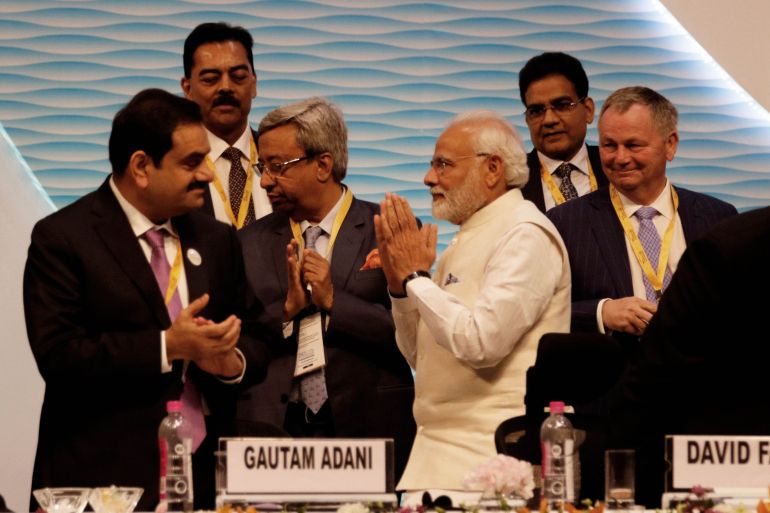
In mid-March, Bangladesh started testing the transmission of electricity from a massive 1,600 MW coal-fired plant in neighbouring India that has stirred major controversy in both countries.
While the supply of electricity for commercial use from this plant is likely to begin next month, confusion and secrecy around the terms of the agreement and how much Bangladesh could be forced to pay have intensified discontent in the country.
Built by Adani Power Ltd – India’s largest private power company founded by Gautam Adani – the $1.7bn Godda plant in India’s Jharkhand state has drawn flak in Dhaka for the “lopsided nature” of the power purchase agreement (PPA) that a number of experts say has favoured the Indian multibillionaire on several fronts. Al Jazeera has reviewed a copy of the agreement.
Under the agreement, Dhaka will pay significantly higher prices – in comparison to what it pays for its other coal-based power – for lower-grade coal. That coal will be supplied from an Adani-owned mine in Australia to an Adani-owned port in India from where it will get shipped to the Godda plant, which is in a coal-mining state.
Apart from that, experts also point out that Bangladesh is not getting the benefit of the tax exemption which Adani Power Ltd got when its Godda plant was declared a Special Economic Zone (SEZ) – the exemption should have been passed on to Bangladesh.
In New Delhi, critics have questioned the whole point of the Modi government going the extra mile to ensure “multiple tax benefits” for a private coal plant that will supply electricity to another country at the cost of its own environment and people.
B D Rahmatullah, a former director general of Bangladesh’s power regulator put it bluntly.
“There are four stakeholders of this plant – people of these two countries, the Bangladesh government and Adani Power,” he told Al Jazeera, “From what I see, only one will be benefitted from it: Adani.”
“Unfortunately, it seems our government has no intention of revising or getting out of this electricity purchase arrangement despite the growing discontent surrounding it,” Rahmatullah added.
Hoopla after Hindenburg report
Even though the electricity deal between Adani and the Bangladesh government is nearly six years old, it didn’t create much of a storm – at least politically – for most of this time as its details were never made public. The deal was struck under a controversial Special Act of Bangladesh that allows the government to make unsolicited PPAs.
“It was not a secret to the AL that Adani was closely tied with Indian Prime Minister Narendra Modi, and a business deal that favours Adani would ultimately bring political favour from Modi to AL government,” Saimum Parvez, research fellow of the department of political science of Vrije University in Brussels, told Al Jazeera.
“And AL needed that favour from India to secure political legitimacy. They are in power on the back of two severely controversial elections [including one in 2014] and they needed all the support from India, the regional superpower,” Parvez added.
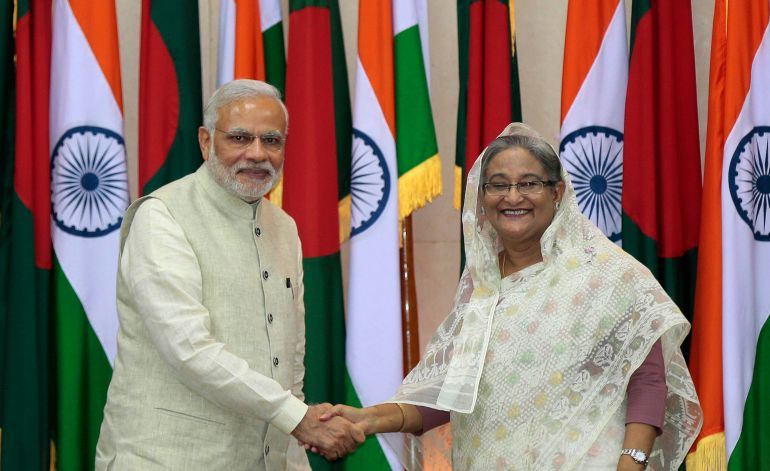
He said the deal with Adani didn’t create much furore for a long time as the AL government successfully contained any sort of criticism with its firm grip on the opposition parties and muzzled the press with draconian laws.
But that started to change from mid-2022 onward, Parvez said, as the country started to feel the heat of inflation, price hikes, shrinking foreign reserves, and embezzlement of millions of dollars from a series of banks, leading to a rise in public discontent.
“After a long time, opposition political parties successfully arranged several massive protests in the latter half of 2022. And then the Hindenburg report was released in the beginning of this year,” said Parvez, giving them more ammunition for their protests.
In January, Adani, who was the world’s second-richest man just a few months ago, was thrown at the centre of a worldwide scandal when a bombshell report by a US-based short-seller named Hindenburg Research accused him of stock market manipulation and fraud. Within a few weeks, Adani lost more than $100bn of his wealth.
In Bangladesh, analysts as well as opposition political parties have seized on that to question the necessity of the power deal. Criticism over the deal was mounting even before the Hindenburg report on the back of reports in the Washington Post – which reported on its unfavourable terms for Bangladesh – and Bangladeshi news agency UNB, which said the country had tried to renegotiate in recent times.
The Indian conglomerate has denied Bangladesh did so. In an email to Al Jazeera, Roy Paul, associate vice president of Adani Group, said that the Bangladesh Power Development Board (BPDB) – the state-owned entity that purchases electricity on behalf of the government – has “never sought any revision in power purchase agreement with Adani Power”.
In Bangladesh, top government officials from both the BPDB and Power Ministry did not respond to Al Jazeera’s query whether Dhaka had indeed sought a revision of terms. One BPDB official who preferred to remain unnamed as he’s not authorised to speak to the media said, “We are instructed from the high-ups to remain completely tight-lipped about anything with the Adani deal.”
Nasrul Hamid, the country’s state minister for power and energy, declined to comment.
‘Designed to benefit Adani’
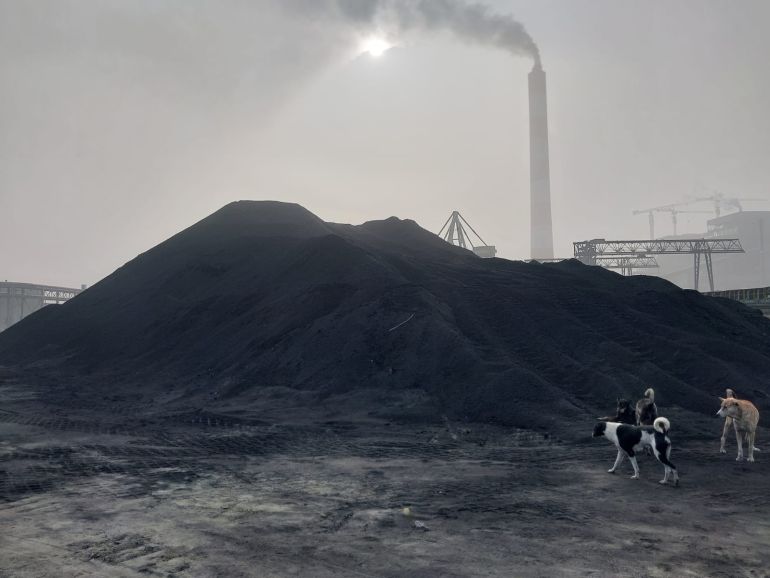
The groundwork for the deal with Adani’s Godda plant was laid during Narendra Modi’s first state visit to Bangladesh in 2015 when the country was already generating more than 12,000 MW of electricity against the peak demand of 8,177 MW.
At the time, the Bangladeshi economy was growing rapidly and it was projected that, by 2030, the country would need 34,000 MW to sustain its growth.
The US-based Institute of Energy Economics and Financial Analysis (IEEFA), pointed out in its 2018 report, Adani Godda Power Project: Too expensive, too late and too risky for Bangladesh (PDF) that the project was “clearly designed to benefit Adani” and is, at least in part, “an attempt to prop up Adani Enterprises’ troubled Carmichael coal project in Australia”.
Simon Nicholas, the author of the IEEFA study, told Al Jazeera that the original plan for Godda was to use local coal mined in Jharkhand state but was later changed to use coal from Adani’s Carmichael coal mine in Australia, where the coal is high ash and low energy.
“BPDB was basically locked into a power purchase agreement that allows Adani to import coal into an Indian coal mining state from Australia and pass the full cost onto Bangladesh,” he said.
Conflicting information given by the BPDB and Adani Power about the price of coal for the plant has only deepened the controversy. Bangladeshi media reported, citing BPDB officials, that Adani Power asked $400 per metric tonne of coal for the Godda plant, a whopping 60 percent more than the average $250 Bangladesh usually pays for imported coal for its other power plants in Payra, Banskhali or Rampal.
Paul also said the electricity tariff from Godda will be $0.1363 per kilowatt hour (including a fixed capacity charge of $0.0424), and not $0.24 per kilowatt hour as reported by Bangladeshi media. A capacity charge is the base sum paid to a power plant even if no electricity is taken.
Al Jazeera couldn’t independently verify the company’s claims as it didn’t provide documentation of these tariffs. Several BPDB officials Al Jazeera contacted declined to comment on the conflicting information provided by them and Adani Power.
Al Jazeera did verify that the per-kilowatt-hour price at Bangladesh’s Rampal Power Plant is $0.1889 (including a capacity charge of $0.0485), while the price for the same at Banshkhali Power Plant is $0.1897 (including a capacity charge of $0.0460).
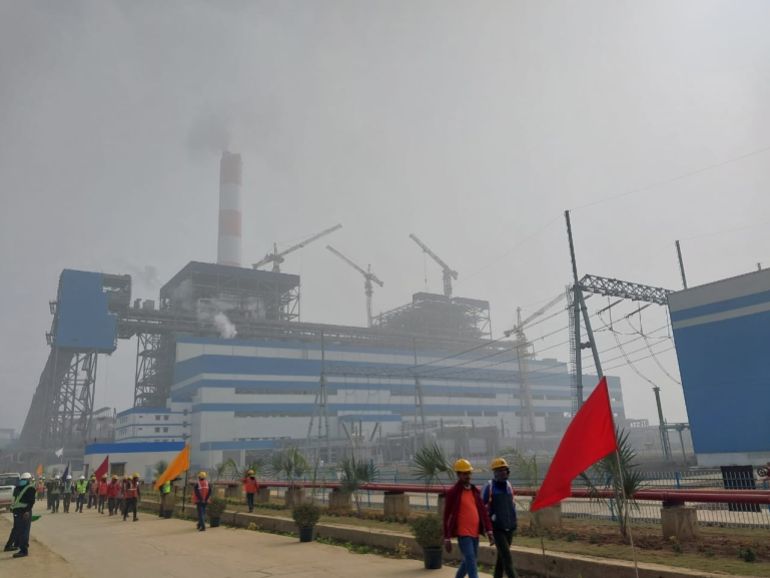
Mohammad A Arafat, founder and chairman of Suchinta Foundation, a think tank and a member of the central executive committee of Bangladesh’s ruling Awami League, told Al Jazeera that Bangladeshi media has published “many misleading reports” about electricity tariff and coal price of the Godda plant.
“Bangladesh is buying coal based on the standard international market price and getting electricity from Godda at a very competitive rate,” said Arafat, who is also a professor of strategic management and policy at the Canadian University of Bangladesh, a private university.
“Those who are criticising the plant are either spreading misinformation or lack the capacity to understand the very deal.”
Shamsul Alam, energy adviser for the Consumer Association of Bangladesh (CAB) and a critic of the deal, says that, unlike the PPAs for Rampal and Banshkhali, which have a cap on the prices Bangladesh pays if the cost of coal skyrockets, the agreement with Godda has no cap.
“The sky is the limit,” Alam said.
“Now Adani Power says they are charging less than the other coal-based plants in Bangladesh but that is just for this month. BPDB confirmed just a month ago that Adani was charging quite an exorbitant price per metric tonne of coal.
“Maybe they are now asking for a reduced price in face of outcries in Bangladesh. But where lies protection against abnormal price hikes of coal in the agreement?” he asked.
Veteran Bangladeshi energy journalist Arifuzzaman Tuhin pointed out another major flaw of the Godda coal deal. As per the agreement, Adani Power will get the price of 555.43 grammes of coal for each unit of electricity production, more than the industry average of 493.48 grams. “Just because of this, Adani Power will rake in an extra half a billion US dollars per year from this plant,” he told Al Jazeera.
That apart, the agreement says that at least 34 percent of the plant’s annual electricity output must be taken and paid for by the BPDB, something which none of the other plants has in their PPAs.
“This is insane, considering the fact that Bangladesh is forced to pay this on the top of at least $450m per year which it will pay for the capacity charge of Godda,” Tuhin said.
As per the IEEFA report, Adani should have reduced Godda’s capacity charge for Bangladesh by at least 12 to 15 percent on the back of the tax benefits the power plant received in India, which will help the company save at least $1bn over 25 years.
“Adani Power didn’t bother to pass down the benefits of tax exemption and that means Bangladesh is bearing something which it is not supposed to bear,” Tuhin said.
CAB’s Alam said the agreement’s lopsidedness is evident in every section.
“Just tell me how this is justified?” Alam asked.

